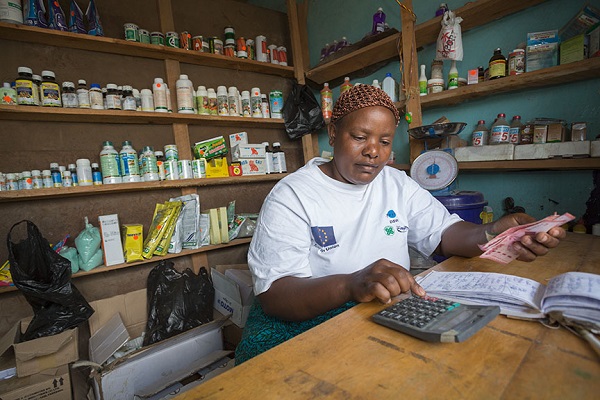You’ve seen the headlines, you’ve heard the news: Africa is a hot economic commodity. “It’s the next China or Dubai,” you say over the water cooler at work.

“But isn’t it unstable and unsafe?” a co-worker counters hazily; he skims the New York Times on the way to work, and has recently seen headlines about potential violence in
Kenya .
But you subscribe to our Daily Top 10 and weekly Business newsletters, and say, ”The Kenyan shilling has actually gone up in recent weeks, and Mark Mobius says the improvement in infrastructure makes Kenya a worthy long-term investment.”
You’re ready, willing and eager to do business in Africa. But you have no idea where to start. We sympathize.
Recently, Africa.com’s CEO and founder Teresa Clarke was invited to deliver a speech on doing business in Africa to a packed room in the White House, full of CEOs and investors. She delivered the following ten tips, the ten things no one ever tells you. The audience left the room confident and ready to engage with the continent; you will be too.
Doing Business in Africa: Ten Things No One Ever Told You
The African business culture, similar to the Asian business culture, is driven more by relationships and less by transactions.
African consumers have
more money than you think , and they’re willing to spend less money on food to purchase airtime. As one of our bloggers wrote recently about Kenyans, “basic needs, in the eyes of a growing few, include access to cheap mobile (and internet) services.”When it comes to doing business in Africa, it’s neither one country nor 54 countries. Rather you have to take a regional approach. In our “Insider’s Guide to Business Travel to Accra, Ghana,” for example, we wrote, “Many business travelers to West Africa find Accra to be close enough to access Nigeria’s large market, but prefer the quality of life that Accra affords visitors.”
Brand loyalty is high. See the food and beverage and banking sectors.
Corruption—it’s not just an American (or Western) concern. Africans take corruption very seriously because it costs entrepreneurs, drives uncertainty, and inhibits growth.
Africans think China is good for business. Firstly and perhaps most importantly, Chinese treat Africans as peers, not children who need incentives for good behavior. Chinese are faster to make decisions, and have provided high profile infrastructure–in other words, they have delivered on projects. An example is Ghana’s new international airport.
Poor people have market preferences, too. Before entering a market, research is essential. Don’t assume that cheaper is always better; durability is often a core value.
Modes of communication are different. Cell phones are ubiquitous, so expect to text–a lot. On the other end of the spectrum, you’ll rely less on e-mail and the post office. Your driver might also serve as your courier.
Use local consultants and experts. They’ll have knowledge of local customs, culture and relationships. It’ll minimize “school fees,” and deepen your perceived investment.
Americans are the last ones to the party. Perhaps a more apt name for this article might be, “Ten Things No One Ever Told You…If you are an American.” Europeans, Chinese and South Africans—yes, this is one of those weird regionalisms where South Africa is a separate market from the rest of the Continent—are already doing business in Africa and profiting.
Congratulations @mineemmy! You have completed some achievement on Steemit and have been rewarded with new badge(s) :
Click on any badge to view your own Board of Honor on SteemitBoard.
For more information about SteemitBoard, click here
If you no longer want to receive notifications, reply to this comment with the word
STOPDownvoting a post can decrease pending rewards and make it less visible. Common reasons:
Submit
Hi! I am a robot. I just upvoted you! I found similar content that readers might be interested in:
https://www.africa.com/doing-business-in-africa-ten-things-no-one-ever-told-you/
Downvoting a post can decrease pending rewards and make it less visible. Common reasons:
Submit